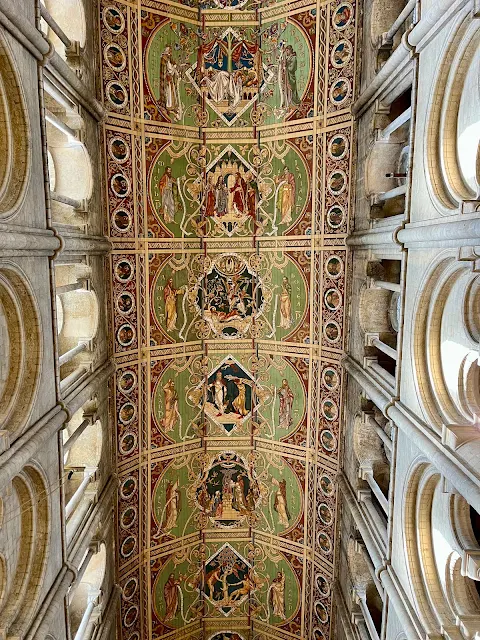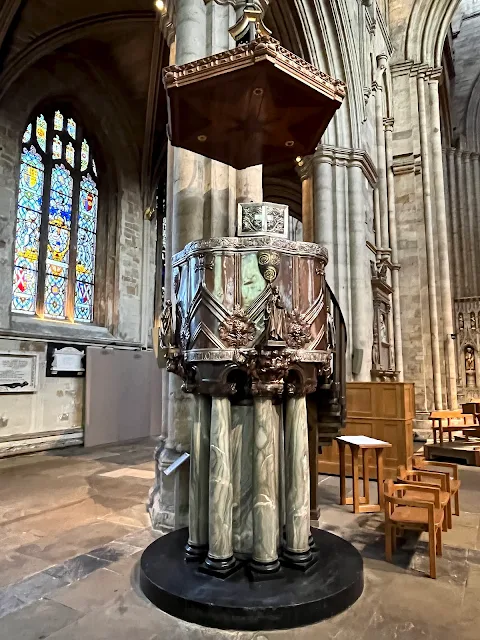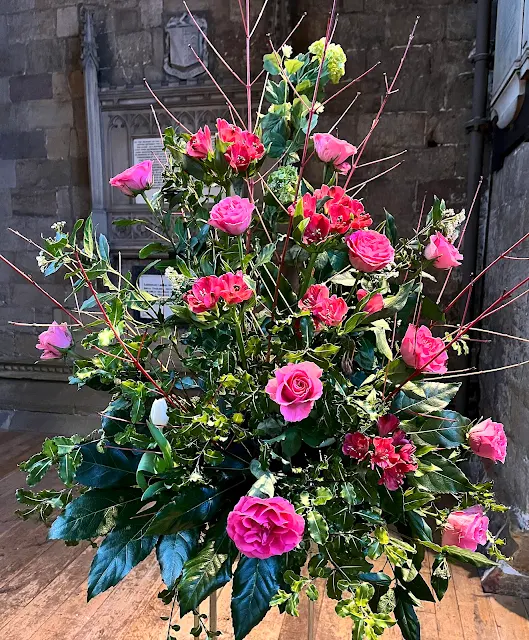Monday, January 12, 2026
Family of Spies
"One morning, soon after Otto arrived at his office, there was a knock on the door. Several men burst through and dragged him from his chair, hustling him into a black sedan without any explanation and speeding away."
Sunday, January 4, 2026
Crim Dell
"The Crim Dell bridge is a wooden bridge on the College of William & Mary’s campus in Williamsburg, Virginia, United States, and is considered one of the College's most visually appealing elements. Crim Dell is the pond that the bridge crosses, but the bridge is commonly referred to as Crim Dell." -- Wikipedia
Monday, October 27, 2025
Inflatables
"Protesters have taken to wearing oversized inflatable costumes to deflate tensions and draw attention at rallies against Trump administration’s policies. Crowds across the U.S. and abroad rallied Saturday during 'No Kings' demonstrations against what they call a slide into authoritarianism under President Donald Trump. Republicans dismissed the gatherings as “Hate America” rallies, but many had a festive feel" -- AP News
In this photo, though, I would also take note of the gentleman wearing the AFL-CIO stocking cap, suggesting to me, at least, the more sober side to this No Kings protest.
Sunday, October 26, 2025
First Amendment
"The 'No Kings' gatherings wouldn’t have been possible without the First Amendment; a cornerstone of U.S. democracy. It gives us freedom of speech, to peacefully protest, and to gather without fear of government intervention. In this country, everyone is entitled to their beliefs, and to act on them lawfully and without fear of punishment — no matter how 'unpopular' or 'disfavored' those beliefs may be.
But the Trump administration continues to abuse its power to silence and punish people and organizations who express viewpoints it doesn’t like. Despite fearmongering from those who would prefer that the public stay quiet, millions of Americans refused to stay home and instead channeled their courage to show up and speak up for each other. Because the best way to protect our First Amendment rights is to keep using them — and to do so peacefully, knowing the power of nonviolent protest to make repression backfire." -- Ellen Flenniken, ACLU Justice Division
Friday, October 24, 2025
Activism
Wednesday, October 22, 2025
Bubbles
Tuesday, October 21, 2025
Tyranny
Tuesday, September 30, 2025
Pail
Tuesday, August 26, 2025
Woodland Sunflower
Wednesday, August 13, 2025
Eighteenth Amendment
Tuesday, July 22, 2025
Naumkaeg
Thursday, June 12, 2025
Wesley House
Tuesday, June 3, 2025
Octagonal Tower
Ely Cathedral's large stone octagonal tower, with its eight internal archways, according to Wikipedia, "leads up to timber vaulting that appears to allow the large glazed timber lantern to balance on their slender struts. The roof and lantern are actually held up by a complex timber structure above the vaulting which could not be built in this way today because there are no trees big enough. The central lantern, also octagonal in form, but with angles offset from the great Octagon, has panels showing pictures of musical angels, which can be opened, with access from the Octagon roof-space, so that real choristers can sing from on high. More wooden vaulting forms the lantern roof. At the centre is a wooden boss carved from a single piece of oak, showing Christ in Majestry. The elaborate joinery and timberwork was brought about by William Hurley, master carpenter in the royal service."
Just so that you know, none of our choristers sang from "on high." I don't think I could have recovered from vertigo long enough to sing. 😵
Saturday, May 31, 2025
Ely Cathedral

Saturday, May 10, 2025
Limestone

Wednesday, May 7, 2025
Selby Abbey
After Ripon, we headed to Selby Abbey for a midday concert.
"The church is one of the relatively few surviving abbey churches of the medieval period and although not a cathedral, it is one of the largest. It was founded by Benedict of Auxerre in 1069 and subsequently built by the de Lacy family.
On 31 May 1256, the abbey was bestowed with the grant of a mitre by Pope Alexander IV and from this date was a 'Mitred Abbey'. This privilege fell into abeyance a number of times, but on 11 April 1308, Archbishop William Greenfield confirmed the grant, and Selby remained a 'Mitred Abbey' until the Dissolution of the Monasteries." -- Wikipedia
Saturday, May 3, 2025
Choir & Pulpit
Friday, May 2, 2025
Ripon Font
Thursday, May 1, 2025
Quiet
























